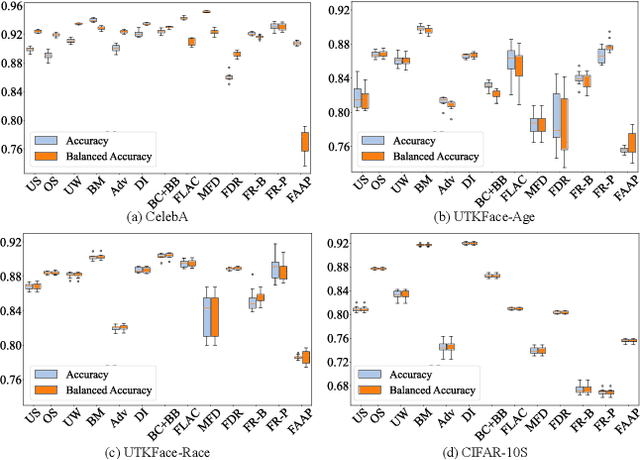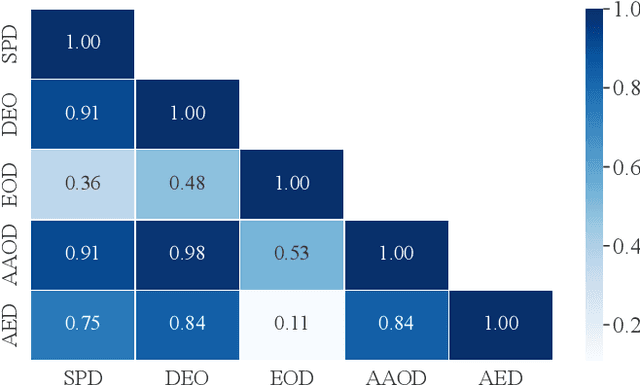A Large-scale Empirical Study on Improving the Fairness of Deep Learning Models
Paper and Code
Jan 08, 2024



Fairness has been a critical issue that affects the adoption of deep learning models in real practice. To improve model fairness, many existing methods have been proposed and evaluated to be effective in their own contexts. However, there is still no systematic evaluation among them for a comprehensive comparison under the same context, which makes it hard to understand the performance distinction among them, hindering the research progress and practical adoption of them. To fill this gap, this paper endeavours to conduct the first large-scale empirical study to comprehensively compare the performance of existing state-of-the-art fairness improving techniques. Specifically, we target the widely-used application scenario of image classification, and utilized three different datasets and five commonly-used performance metrics to assess in total 13 methods from diverse categories. Our findings reveal substantial variations in the performance of each method across different datasets and sensitive attributes, indicating over-fitting on specific datasets by many existing methods. Furthermore, different fairness evaluation metrics, due to their distinct focuses, yield significantly different assessment results. Overall, we observe that pre-processing methods and in-processing methods outperform post-processing methods, with pre-processing methods exhibiting the best performance. Our empirical study offers comprehensive recommendations for enhancing fairness in deep learning models. We approach the problem from multiple dimensions, aiming to provide a uniform evaluation platform and inspire researchers to explore more effective fairness solutions via a set of implications.
 Add to Chrome
Add to Chrome Add to Firefox
Add to Firefox Add to Edge
Add to Edge